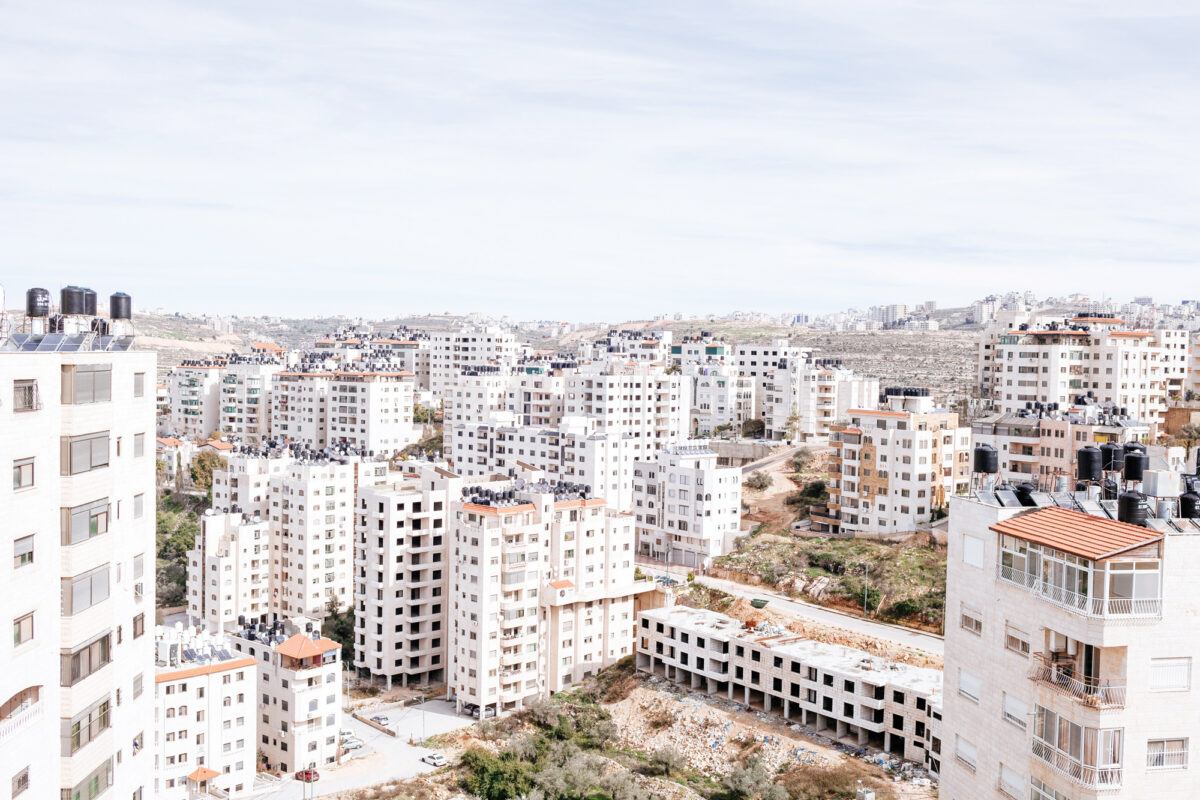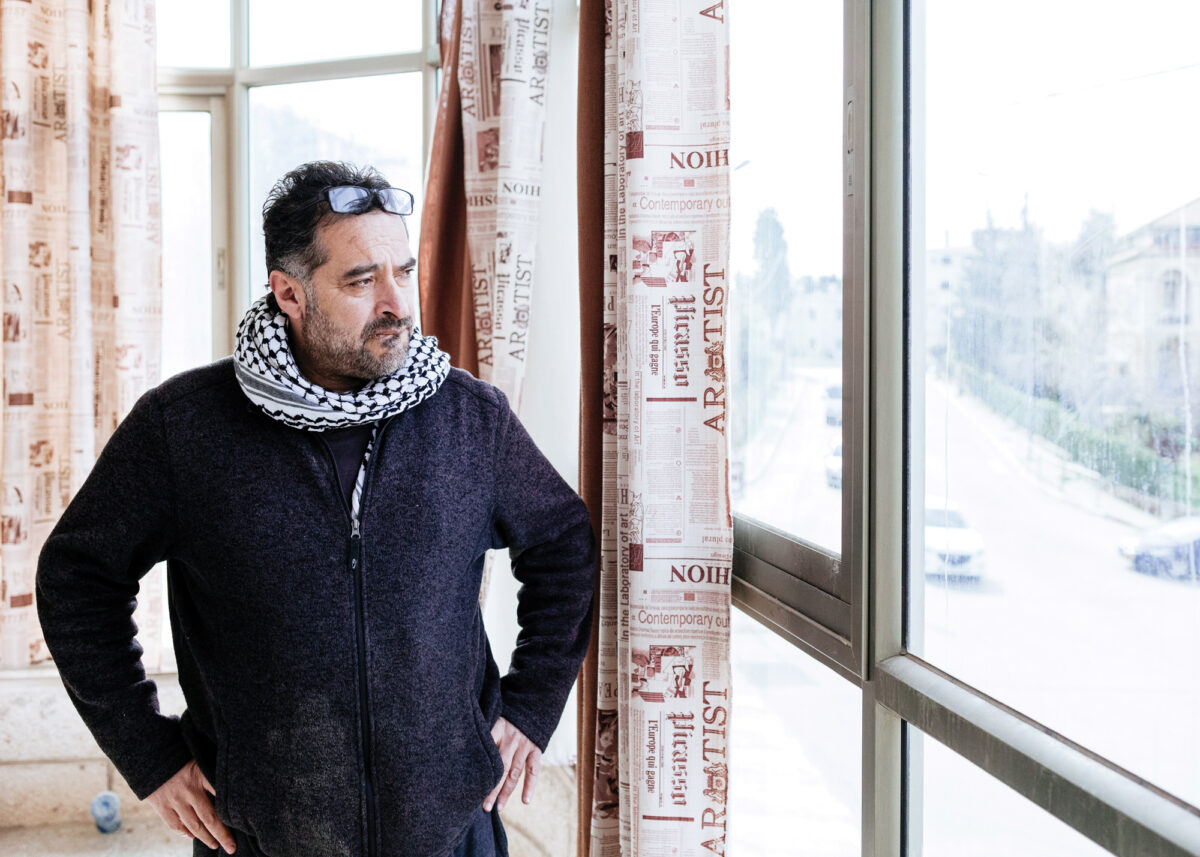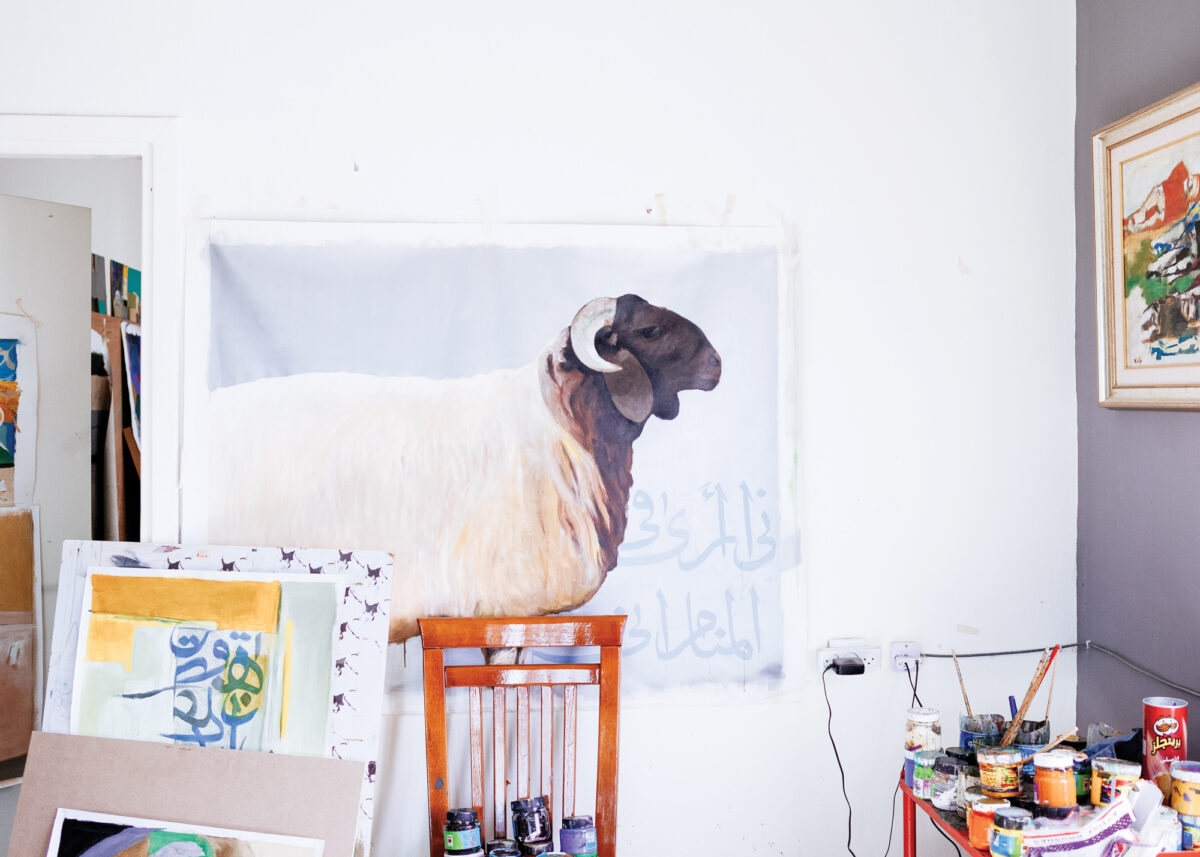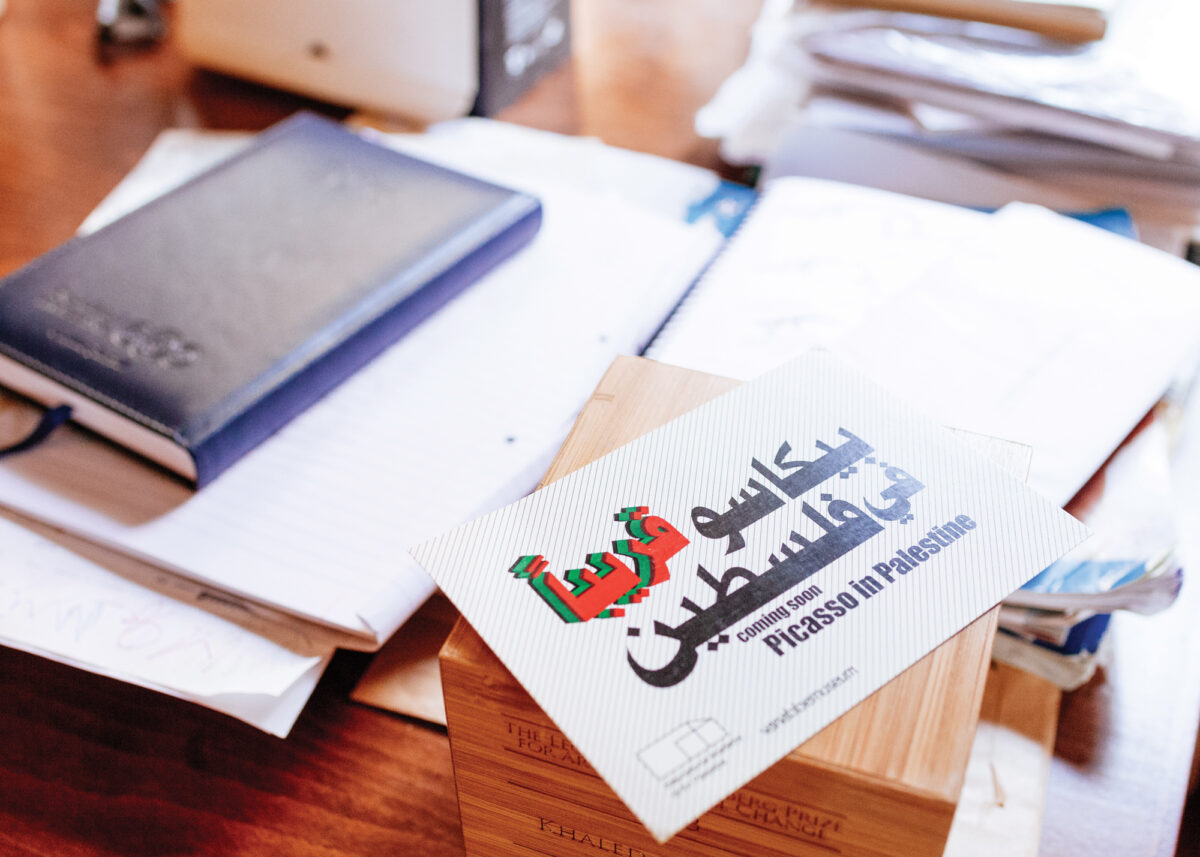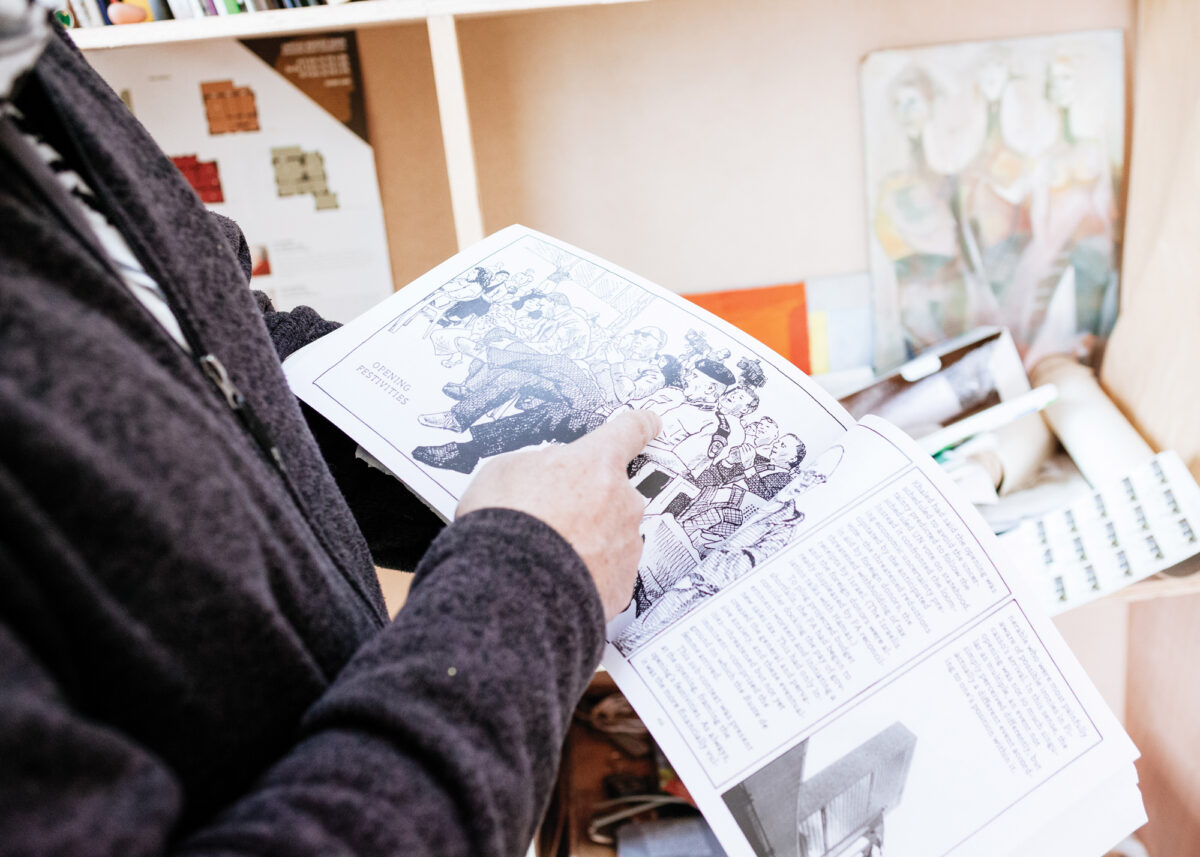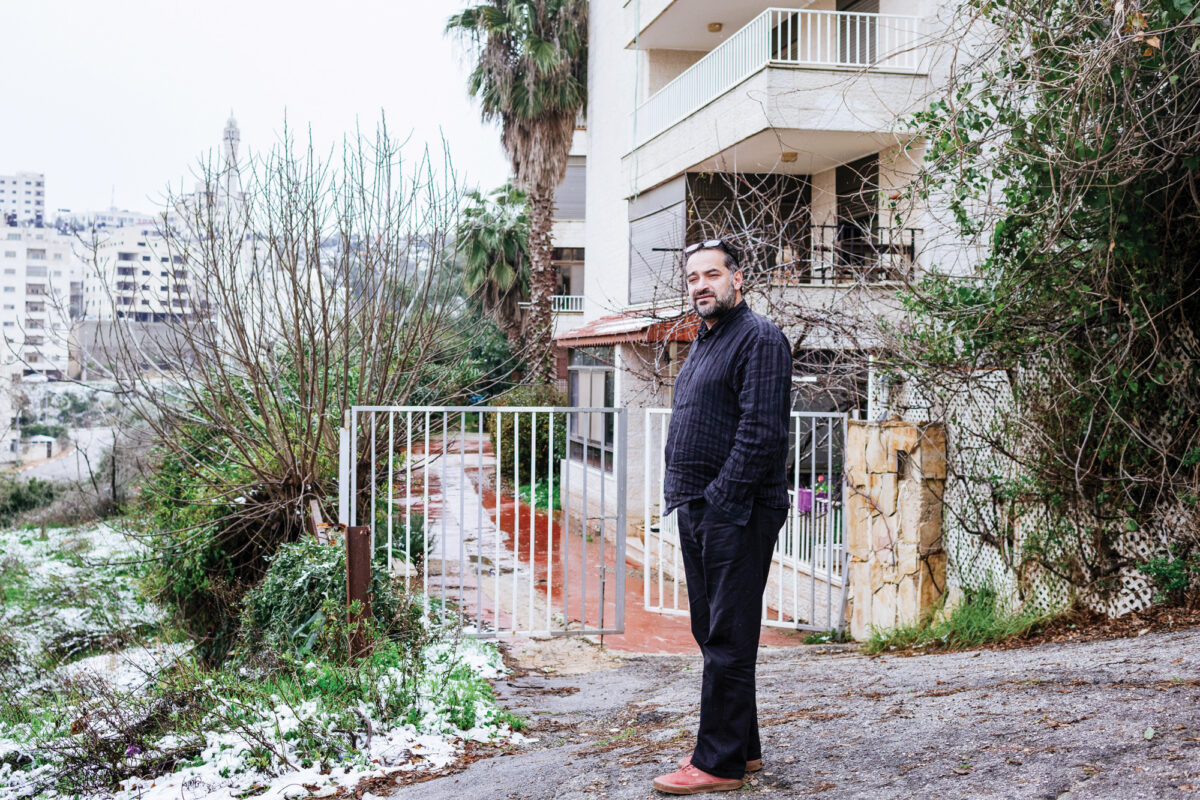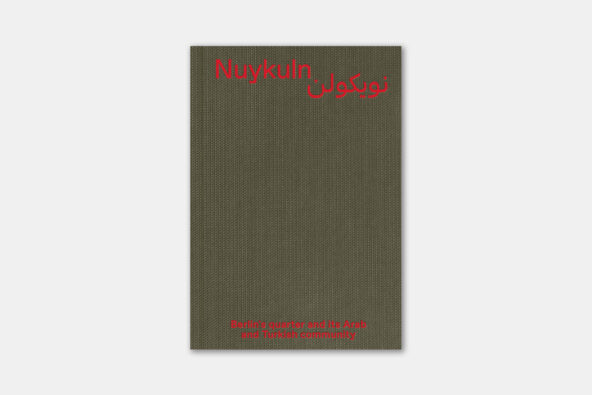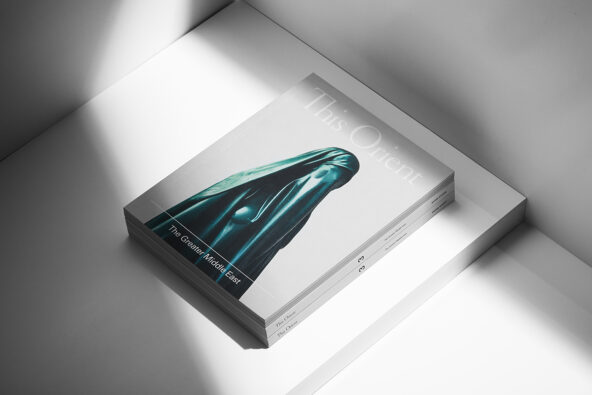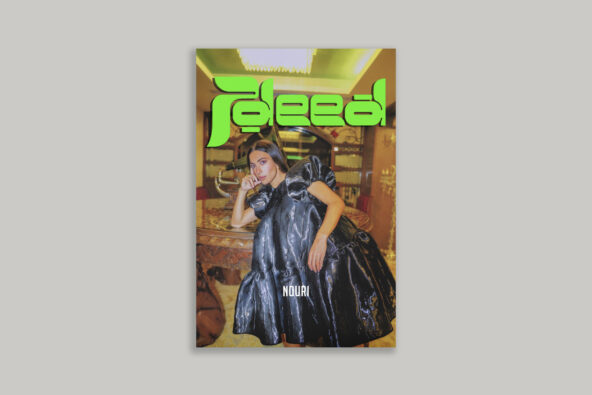Khaled Hourani
‘You know, I’m more than an artist,’ says Khaled Hourani at his home in Ramallah, as he adds the final spices to a maklouba dish he’s preparing in the kitchen. ‘I don’t even know if I’m a good artist, but cooking, ah, that I am certain I’m good at.’
With the kitchen at the centre of the home – exposed to both the living room and library at one end and the garden at the other – the openness of the space is intentional. The home is ‘without boundaries,’ as Hourani puts it. He demolished the walls that cut the kitchen off from the living room and library with what seems like an almost existential approach to design: ‘Why should I keep them?’ he asked himself. ‘I don’t think the eating space should be divided from the living space.’
Oddly enough, Hourani’s most well-known project ‘Picasso in Palestine’, which lasted from 2009 to 2011 ostensibly divulged the boundaries associated with Palestine. Standing in the centre of his living room, with memorabilia from the project hung behind him, he explains how the project eclipsed his previous works, as well as those that followed. ‘It’s almost like a burden,’ he says, ‘it shadowed all of my work.’ Despite its massive success, ‘Picasso in Palestine’ is only an iota of Hourani’s varied output.
Read the whole story after the jump on Brownbook.
